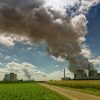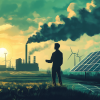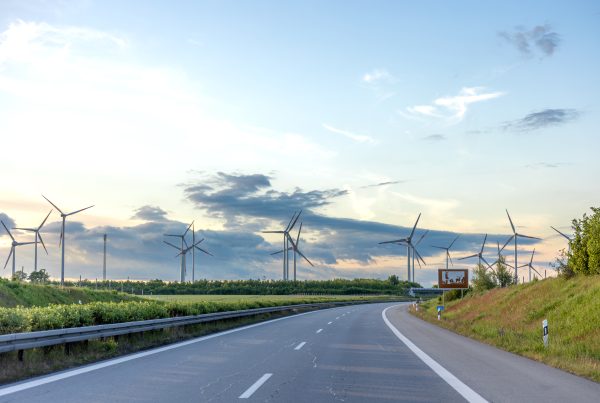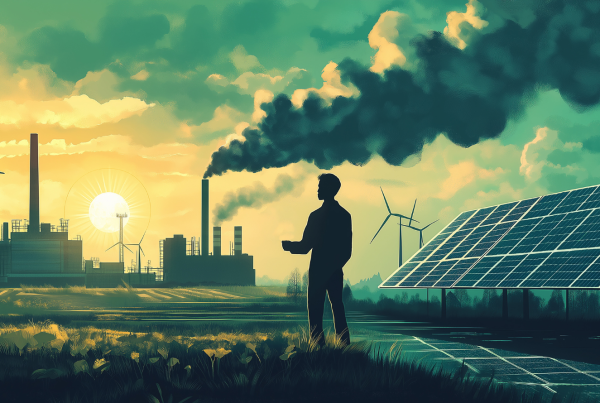Air pollution stands as one of India’s most critical public health and environmental challenges. As urbanisation and energy demands surge, reliance on fossil fuels continues to rise, worsening the country’s Air Quality Index (AQI). In this context, renewable energy solutions become vital, as they can significantly reduce coal-based emissions, making them not just relevant but essential for India’s future.
Leading this charge is Jakson Group, a prominent Indian energy and infrastructure company that is spearheading clean-energy innovation through renewable energy manufacturing India, from solar module manufacturing India to green hydrogen to ensure India can breathe cleaner air.
The Air Quality Challenge in India
India’s AQI frequently reaches hazardous levels in many cities, driven by emissions from coal-fired power plants, vehicular exhaust, dust, and industrial pollutants. Our dependence on fossil fuels exacerbates greenhouse gas emissions while releasing harmful particulate matter (PM₂.₅, PM₁₀) and other toxic pollutants. Transitioning to renewable energy is not just necessary; it’s crucial for curbing these emissions at the source and safeguarding public health.
Renewable Energy’s Role in Improving AQI
Renewable energy is a game-changer in reducing our reliance on polluting fuel sources. By harnessing electricity from solar, wind, biomass, and other clean resources, we can drastically cut harmful emissions, leading to improved air quality. Furthermore, energy storage and distributed renewable systems are vital in minimising peak pollution, particularly from backup diesel generators in urban or remote areas.
Jakson’s Contribution through Local Renewable Manufacturing
Our group is at the forefront of advancing local, clean-energy manufacturing in India. With a state-of-the-art solar module factory in Greater Noida, Jakson produces an impressive 1.2 GW of solar modules annually. Recently, we announced a massive investment of around ₹8,000 crore to establish a 3 GW solar cell and 4 GW solar module manufacturing facility. This will be followed by a backward integration into ingots and wafer production in subsequent phases, signalling a clear commitment to fortifying local renewable manufacturing in India. Strategic investments like these not only align with India’s net-zero ambitions but also exemplify our commitment to renewable energy manufacturing in India.
Distributed Energy & Storage
Our distributed energy sector offers reliable power solutions through a comprehensive portfolio that includes generators, solar rooftop systems, and battery energy storage systems (BESS). By integrating renewable energy with storage capabilities, we significantly reduce dependence on diesel generators, which are a primary source of local air pollution.
Green Hydrogen & Biofuels
As part of our Green initiative, we are also advancing into innovative fields such as green hydrogen, waste-to-energy, and biomass production. We also manufacture electrolysers and are involved in the development of green ammonia and green methanol projects. Additionally, our biofuels segment includes a grain-based ethanol facility, contributing to the development of cleaner transport fuels.
Broader Impact on Air Quality Index (AQI) and Public Health
By enhancing domestically produced clean energy capacity, Jakson contributes to the displacement of polluting fossil-fuel-based power generation. This transition results in a reduction of emissions, including sulfur oxides, nitrogen oxides, and particulate matter. The implementation of distributed solar and storage systems in both residential and industrial settings diminishes the reliance on diesel generators, thereby improving local air quality. Furthermore, the deployment of green hydrogen and biofuel solutions offers low-emission alternatives to traditional fuels, particularly in the transportation and industrial sectors, thereby fostering long-term improvements in AQI.
Challenges and the Way Forward
Despite the promising transition to renewable energy, several challenges remain. Scaling manufacturing to meet national objectives necessitates substantial capital investment and ecosystem support. Strengthening supply chain resilience from raw material acquisition to critical component production is essential. Additionally, regulatory frameworks must evolve to facilitate the integration of distributed energy systems within urban grid infrastructures. Workforce development is crucial; Jakson is actively investing in bridging the skills gap through training programs in solar technology, hydrogen production, and energy storage. Overcoming these challenges will rely on sustained investment, continual innovation, and alignment of policy frameworks.
Conclusion
Renewable energy is not merely an alternative for addressing climate change; it is fundamental to enhancing air quality in India. The Jakson Group, with a strong emphasis onrenewable energy manufacturing India, solar module manufacturing India, and innovation in clean energy, plays a pivotal role in this energy transition.
By scaling local production, promoting clean technological advancements, and implementing distributed energy solutions, Jakson not only contributes to India’s green manufacturing initiatives but also fosters healthier air quality and a sustainable future. As India progresses towards its net-zero and clean-air objectives, Jakson remains a critical enabler of this transformation.
FAQs
How can renewable energy solutions enhance India’s Air Quality Index (AQI)?
Renewable energy solutions reduce reliance on fossil fuels, particularly coal and diesel, by providing cleaner alternatives such as solar, wind, and biomass. This shift decreases emissions of sulfur oxides, nitrogen oxides, and particulate matter, leading to improved air quality and healthier urban environments.
What significance does Jakson’s local solar manufacturing hold for air quality improvement?
Jakson’s investments in local solar module and cell manufacturing increase the availability of domestically produced clean energy. This initiative replaces coal-based electricity generation, thereby reducing harmful pollutants that negatively impact AQI, especially in densely populated areas.
How do distributed energy systems and battery storage reduce pollution from diesel generators?
Distributed solar systems combined with Battery Energy Storage Systems (BESS) offer cleaner backup power alternatives. By reducing dependence on diesel generators, which are significant pollution sources, these solutions significantly lower emissions of particulate matter and nitrogen oxides in urban and industrial zones









